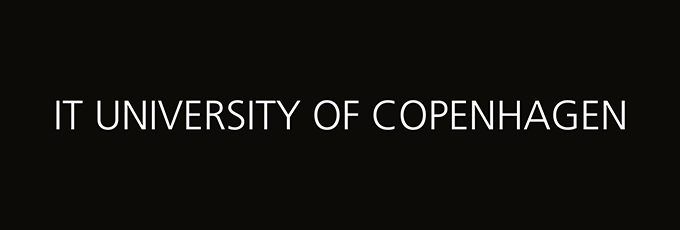After graduating with her bachelor’s degree in Nutrition and Health, Marta Buczek was unsure whether she wanted to stay in the same field or enter a different albeit more challenging one. “I went to an open day at a university in Denmark, considering another programme within my previous field, and I felt no motivation to do it; it seemed boring at this point,” she says.
When seeking other options, she discovered the IT University of Copenhagen’s Master of Science (MSc) in Software Design – and that’s where everything started falling into place in her professional journey.
The MSc in Software Design is a two-year degree designed for students, with and without prior background in the field, to develop their IT skills and knowledge. Whether you hold a bachelor’s degree in arts and humanities, science, or social sciences, this programme will show you how to use computer science to complement your established skill set.
This fusion was perfect for Buczek. She had no formal education in IT but is eager to learn and apply her understanding to a new career. “Software design programme is basically a short version of five years in computer science, so I get that I have a chance to learn most important theoretical concepts and skills to shift my career path,” she says.
Students like Buczek, who do not have an IT-related educational background, can participate in workshops to refresh their high school mathematics skills and get a quick introduction into programming. These workshops are BootMath, which covers basic mathematical concepts that you will use in the master’s degree, and BootIT, an early introduction to the foundation of basic programming principles. Both of these will be revisited and elaborated further during the programme.

The MSc in Software Design requires you to complete five mandatory programming and mathematics courses. Source: IT University of Copenhagen
The MSc in Software Design provides you with in-depth knowledge of software design, programming languages, distributed systems, algorithms, and software development processes – the latter consists of analysis, design, development, test, and launch, which you will have the chance to work on during your master’s. You will also explore the business side of things and learn about the organisational and managerial parts of a development process.
Spanning four semesters, the programme requires students to complete 120 worth of ECTS consisting of five mandatory courses, specialisations, electives, a research project, and a master’s thesis. You start with Introductory Programming, a course that introduces Java and other general object-oriented programming software. That same semester, you will also learn about Software Engineering and Software Qualities and Discrete Mathematics. The former introduces you to professional software engineering, where you will act as a project member and take over management responsibilities for minor projects. The latter provides you with the mathematical foundations of computer science, which you will use in later semesters.
During your second semester, you will take two mandatory courses: Introduction to Database Design to learn how to store and retrieve large datasets in computers efficiently, and Algorithms and Data Structures, a course that trains you to design efficient and correct programmes while providing basic algorithmic tools that are compulsory for every software developer. Your second semester is also when you choose to specialise in either Business Analytics, Technical Interaction Design, or Software Development Technology.

The MSc in Software Design specialisations cater to your previous degree, whether in social science, arts and humanities, or natural sciences. Source: IT University of Copenhagen
These specialisations prepare you to dive deep into a research topic in your third semester and to write a master’s thesis during your fourth. They cater to your undergraduate background so that you can feel familiar going into one of these specialisations.
Take the Business Analytics specialisation, for example. This is suitable for students who hold a bachelor’s degree in social science, such as political science and economics. On the other hand, the Technical Interaction Design specialisation is ideal for those with a background in arts and humanities. Software Development Technology is apt for natural sciences undergraduates.
Whichever you choose, you’ll benefit from the programme’s links with the university’s business community. This opens doors to collaborative opportunities with private companies even before you graduate. “I received job offers even before finishing at ITU, and the skills I gained were absolutely key,” says graduate Albert Bethlowsky Hammerich. “You quickly notice that preparing students for the job market is central to ITU’s environment. Many companies are keen on the skills you gain there, which is evident when interacting with potential employers.”
Today, Hammerich is a Senior Software Engineer at one of the largest tech consulting companies in the Nordics. With the skills he learned from the programme, he has progressed quickly in his career.
“My education from ITU has offered a strong ROI,” he says. “The skills you learn at ITU prepare you not just for jobs in Copenhagen but are applicable globally. I’m very open to working in different countries and cultures in the near future, and I feel confident that my education has equipped me to succeed in any tech hub around the world.”
Follow IT University of Copenhagen on Facebook, Instagram, LinkedIn, X, and YouTube.













